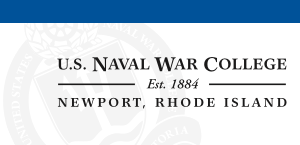Naval War College Review
Volume 57, Number 3 (2004) Summer/Autumn
The Greek philosopher Aristotle (c. 384–322 BC), who by virtue of his Nichomachean Ethics is arguably the founder of ethics as a secular study, in contradistinction to the more religiously oriented moral philosophy of his teacher Plato, and of Plato’s own mentor, Socrates. Over 2,300 years later, ethics—as a practical discipline as well as a scholarly pursuit—remains a central concern of the Naval War College. This issue collects, under the rubric “Legal and Ethical Issues of IRAQI FREEDOM,” articles emerging from, and addressing key issues of, the College’s fifteenth annual Professional Ethics Conference, held in November 2003.
Full Issue
Summer/Autumn 2004 Full Issue
The U.S. Naval War College
From the Editor
A Note from the Editors
The U.S. Naval Editors
From the Editors
The U.S. Naval War College Press
President's Forum
President’s Forum
R.A. Route
Articles
A Premium on Good Judgment
Richard N. Haass
The Trouble with Mixed Motives
Susan D. Fink
Jus Post Bellum
Louis V. Iasiello
A Legal Appraisal of Military Action in Iraq
James P. Terry
Principia Leviathan
Neta C. Crawford
New Rules for War?
Joel Rosenthal
Self-Inflicted Vulnerabilities
Stephen D. Wolthusen
To the Edge of Nowhere?
Gudni Th. Jóhannesson
Book Reviews
Book Reviews
The U.S. Naval War College
A New National Security Strategy in an Age of Terrorists, Tyrants,and Weapons of Mass Destruction:
Andrew L. Ross
Rumsfeld’s War,
Jan Van Tol
The Art of War,
Carnes Lord
Corporate Warriors,
Richard Lacquement
The Face of Naval Battle: The Human Experience ofModern War at Sea,
Richard J. Norton
Reconciliation in the Asia-Pacific
John Garofano
Sky and Ocean Joined: The U.S. Naval Observatory, 1830–2000,
John B. Hattendorf
Additional Writings
Research and Debate
Eric J. Labs
Review Essay: What Did the Cold War Teach Us?
James M. Goldgeier


